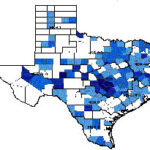Pertussis Outbreak in Williamson County Continues
Pertussis Outbreak in Williamson County Continues
 You’ve probably heard it in the news. There is a Pertussis (Whooping Cough) outbreak in Williamson County and, I am sure, in other areas of the country. Whooping cough is a childhood disease, right? If you are an adult you may be thinking “who cares, it is not going to affect me anymore!” or “I was immunized as a child, I am protected”. Wrong and wrong again.
You’ve probably heard it in the news. There is a Pertussis (Whooping Cough) outbreak in Williamson County and, I am sure, in other areas of the country. Whooping cough is a childhood disease, right? If you are an adult you may be thinking “who cares, it is not going to affect me anymore!” or “I was immunized as a child, I am protected”. Wrong and wrong again.
It is a childhood disease and we all got immunized when we received the DTP vaccine, which stands for Diphtheria, Tetanus and Pertussis. But over the last few years those who look at national statistics for a living realized that the incidence of Whooping Cough in adolescents and beyond was increasing at a rate that was not acceptable.
The Center for Disease Control then issued a recommendation for adults and children over the age of ten to receive a booster dose of the Whooping Cough vaccine.
Here is how it is done: your adolescent or preadolescent child (over 10 years old) is going to be given a booster of Tetanus combined with Pertussis; the vaccine is called TdaP. The big letters indicate the main antigens present in the vaccine, Tetanus and Pertussis. The “d” refers to a small amount of diphtheria antigen that is present only to enhance the recognition by our immune system of the other two antigens, and the “a” (in case you are interested) refers to the presence in the vaccine of the “acellular” type of pertussis antigen.
Back a couple of decades ago, the Pertussis vaccine had side effects such as very high fevers, irritability, etc. This lead to the development of the current “acelular” Pertussis vaccine, which enables the vaccine to stimulate the immune system without making us sick.
If you are an adult you probably know you should receive a booster of Tetanus every 10 years. Tetanus is an almost-always fatal disease, and one for which there is no herd immunity. (Note to self: explain what “herd immunity” is). That is, no matter how many people you get immunized and protected, we are still going to see cases since the bacillus lives in the soil and it is not transmitted from person to person.
So, you need your tetanus booster every 10 years, right? Next time you see your doctor, ask about the status of your tetanus protection. If you are due to receive a booster, ask to be given the TdaP. You don’t need to receive this combination every 10 years, just once is enough. Then you can continue with your regular tetanus-only vaccine every 10 years.
By now you may still be wondering how this Pertussis business is affecting you. Well, it is not a pleasant set of symptoms when you get Whooping Cough; they last for a long time and the disease is very contagious. It may start like a cold, with runny nose and cough, fever and sneezing. After a couple of weeks the cough gets worse, occurring in very strong fits lasting six or more weeks. Children usually have fits of cough followed by a “whooping” sound as they try to catch their breath. The cough is often worse at night.
If you are in contact with small children and babies, your chances of passing the disease to them are very high. Babies suffer greatly when infected with whooping cough; the cough may get so bad that it keeps them from eating, sleeping and breathing. Many end up admitted to the Intensive Care Unit, especially when it affects premature babies.
So, the protection of the vaccine goes beyond you, like it is the case for the majority of the vaccines.
Here are some case scenarios to help you clarify what choices you have to protect yourself and others around you.
Q – I am a 50-year-old grandmother of a cute one-month old baby boy. Do I need to get immunized against Pertussis (Whooping Cough)?
A- Yes. In order to protect your grandson it would be advisable for every member of the family, in immediate contact with the baby, to receive a TdaP booster. Remember, babies start their immunizations at about 2 months of age and Pertussis is one of them. But they don’t mount a protective immunity until they go through the primary series of 3 doses, ending after 6 months of age.
Q – My two-month-old premature grandson is coming home after spending his first two months of life in the Neonatal ICU. He got his first set of shots in the hospital and one of them includes Pertussis. Is he protected during this winter Pertussis outbreak?
A- Because this baby is premature his immune system is not as developed and he needs special care and consideration. It is good that the immunizations have been started, but we must add the effect of “cocooning” the baby in order to protect from serious infections. One of the protective measures to take is to make sure all adults and children in contact with the baby are up to date with immunizations, including the TdaP for those older than 10 years of age, as explained above. Breast-feeding, vitamin supplementation and day care avoidance are other protective measures when dealing with a premature infant.
Q – I am 25 years old and pregnant. I had my last Tetanus booster 5 years ago but I don’t think it included Pertussis. Should I get immunized again?
A – The TdaP vaccine is not indicated during pregnancy. It is not that it is unsafe to receive it; we simply don’t have enough data to make that recommendation. But you can make sure your husband and those who are going to be in contact with your newborn are immunized. Right after you have the baby you can ask your doctor to give you the TdaP vaccine, even if you had a Tetanus booster 5 years ago. The added protection provided by the Pertussis part of the vaccine is good for your baby. If you are planning on breastfeeding, you are going to make antibodies as a response to the vaccine and you are going to pass them through your breast milk to the baby. We can’t measure the extent of that protection, but it is a real one.
Q – I am a 16 year-old High School student. The nurse informed the students and parents about a case of Whooping Cough in the school. I received a Tetanus booster 6 years ago, but it did not include the Whooping Cough. Should I get immunized?
A – Yes. The Tetanus protection is still good, but you are at risk for contracting whooping cough, especially now that you have a case in your school. Those in direct contact with patients suffering from Pertussis get antibiotic prophylaxis, but your doctor or the school nurse will advise you if you need to start taking antibiotics. The best long-term protection you can have right now comes from the TdaP vaccine. Even if your Tetanus part is up to date, it is advisable and safe to get the combination vaccine that includes Whooping Cough.
I hope this explanation and case-scenarios is helpful to you all.
I would appreciate your comments.
Marta Katalenas M.D.

 Next Post
Next Post



